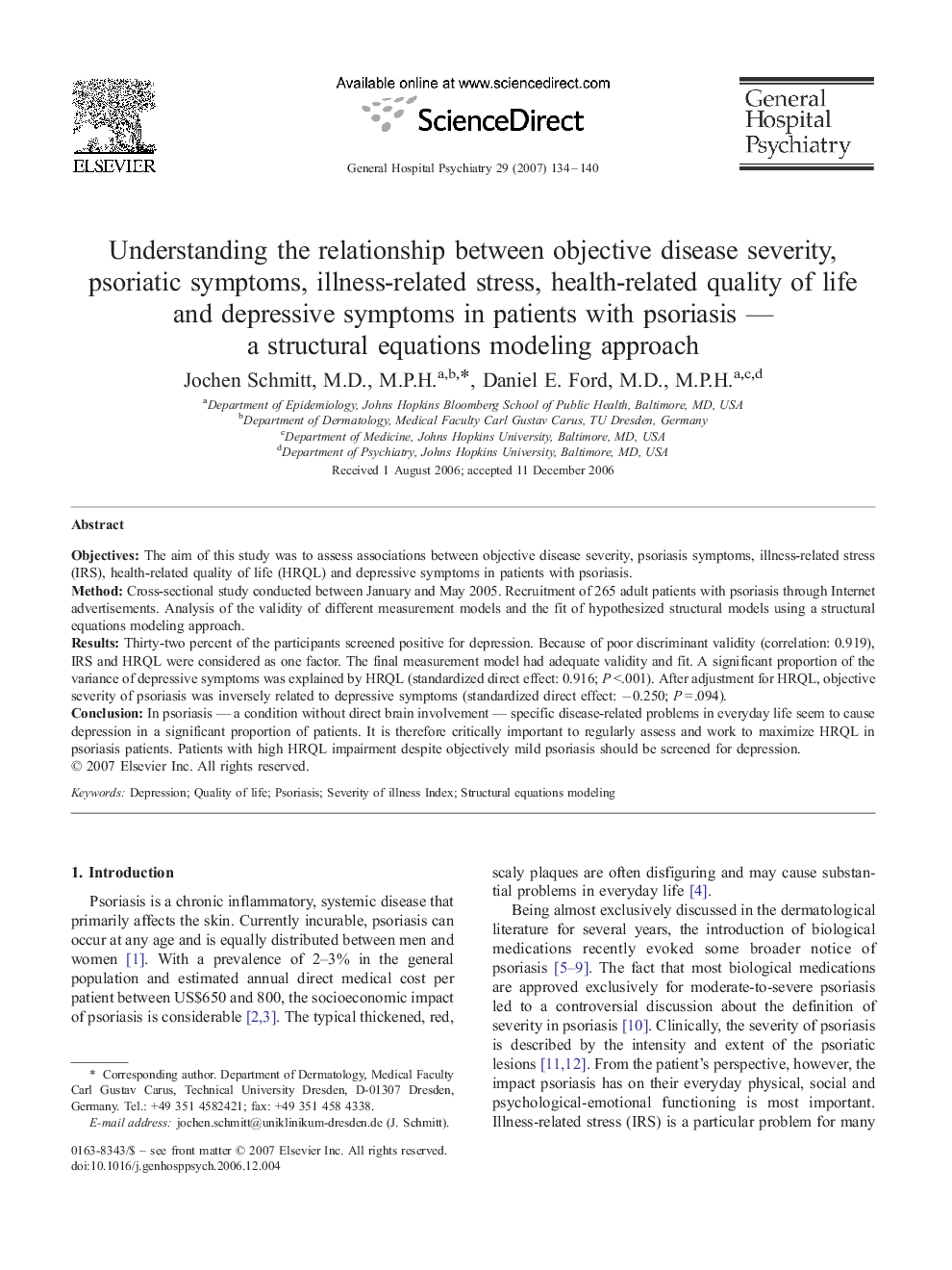| Article ID | Journal | Published Year | Pages | File Type |
|---|---|---|---|---|
| 3238401 | General Hospital Psychiatry | 2007 | 7 Pages |
ObjectivesThe aim of this study was to assess associations between objective disease severity, psoriasis symptoms, illness-related stress (IRS), health-related quality of life (HRQL) and depressive symptoms in patients with psoriasis.MethodCross-sectional study conducted between January and May 2005. Recruitment of 265 adult patients with psoriasis through Internet advertisements. Analysis of the validity of different measurement models and the fit of hypothesized structural models using a structural equations modeling approach.ResultsThirty-two percent of the participants screened positive for depression. Because of poor discriminant validity (correlation: 0.919), IRS and HRQL were considered as one factor. The final measurement model had adequate validity and fit. A significant proportion of the variance of depressive symptoms was explained by HRQL (standardized direct effect: 0.916; P<.001). After adjustment for HRQL, objective severity of psoriasis was inversely related to depressive symptoms (standardized direct effect: −0.250; P=.094).ConclusionIn psoriasis — a condition without direct brain involvement — specific disease-related problems in everyday life seem to cause depression in a significant proportion of patients. It is therefore critically important to regularly assess and work to maximize HRQL in psoriasis patients. Patients with high HRQL impairment despite objectively mild psoriasis should be screened for depression.
